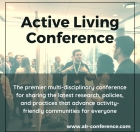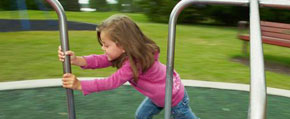We are pleased to announce an exciting new alliance between Active Living Research and GP RED to co-host and coordinate...
Reclaiming the streets for people: Insights from Ciclovías Recreativas in Latin America
Sarmiento OL, Díaz del Castillo A, Triana CA, et al. (2017). Reclaiming the streets for people: Insights from Ciclovías Recreativas in Latin America. Prev Med. 103(Suppl), S34-S40.
The Ciclovías comprise worldwide programs in which streets are closed to motor-vehicles and open to individuals for leisure activities. Currently, 93% of the regular programs are in Latin American countries (LAC). The aims of this study were to describe the characteristics of regular Ciclovías in 7 LAC and to analyze the factors that influence the sustainability and scaling-up of five case studies. We conducted a survey of 67 Ciclovías in 2014–2015. In addition, we conducted semi-structured interviews with current and former program coordinators and reviewed policy documents from Ciclovías in 5 LAC. The greatest expansion of Ciclovías has occurred since 2000. The number of participants per event ranged from 40 to 1,500,000 (mean 41,399 ± 193,330; median 1600), and the length ranged from 1 to 113.6 km (mean 9.1 ± 16.4; median 3). Ciclovía routes connect low-middle and high income neighborhoods (89.3%), and include the participation of minority populations (61.2%). The main complementary activity offered was physical activity (PA) classes (94.0%), and 80.0% of the programs included strategies to promote biking. All five case studies met definitions for sustainability and scaling-up. All programs shared some level of government support, alliances, community appropriation, champions, compatibility with the mission of the host organization, organizational capacity, flexibility, perceived benefits, and funding stability. However, they differed in operational conditions, political favorability, sources of funding, and number of alliances. The Ciclovías of LAC showed heterogeneity within their design and sustainability factors. Both their heterogeneity and flexibility to adjust to changes make them promising examples of socially inclusive programs to promote PA.
- DOWNLOAD "Reclaiming the streets for people: Insights from Ciclovías Recreativas in Latin America" PDF (0.79 MB) Research Papers
STAY UP TO DATE
RECENTLY ADDED TOOLS & RESOURCES
MOVE! A BLOG ABOUT ACTIVE LIVING
The "Active Living Conference" aims to break down research and practice silos and...







